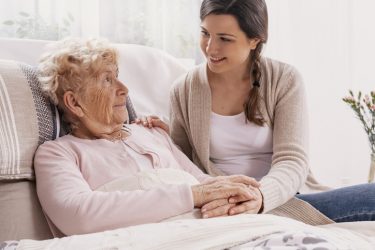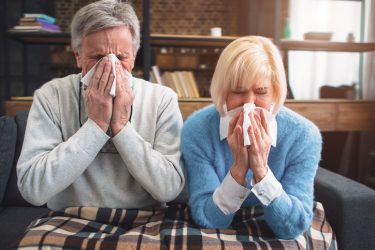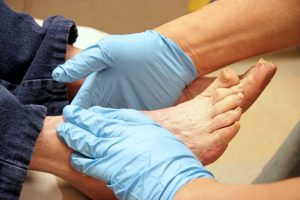If you live in the Greater San Diego or Orange County area then you know we’ve been hit with some cold nights lately!
Some parts of the county have fallen to 30 degree temperatures over the last few weeks.
This is nothing compared to what our friends in the Midwest have to deal with.
Nonetheless, they are cold temperatures and if you’re caring for a loved one, there are precautions to take.
Let’s look at safety precautions you and your family should take as the weather gets colder.
4 health and safety precautions to think of as the weather gets colder
Adequate heating
Do you have enough heating in your home?
People cite cost as a reason why they may not turn on their heat.
If this is the case for you, get in touch with SDG&E (or your local electric company if you live outside San Diego county).
Gas and electric companies have special programs for the elderly and those that fall below certain income levels.
Your rates could get adjusted based on these factors so you pay an affordable rate.
You could also find out about county and government programs that could help you and your family cover heating costs.
Helping your loved one with dementia or Alzheimer’s
If you have a loved one with dementia or Alzheimer’s, you might want to put extra precautions in place in case they wander off.
A whopping 6 in 10 people with dementia will wander.
We have heard media stories about children or older adults with dementia who have died in the cold because they wandered off.
Even though we don’t have to endure harsh winters, this is something to keep in mind.
Keeping your loved one out of the cold can protect them from respiratory tract infections, for instance.
Practical tips to do this would include:
- Install locks/latches at high and low points especially to protect your loved ones at night.
- Help your loved one with calming language when they feel disoriented. Instead of becoming impatient with them, assure them that they’re safe.
- Make sure to meet their basic needs. Your loved one may wander when a particular need -food, water, toileting-is not provided. Make sure to help them here so they don’t wander off.
Here are even more tips from the Alzheimer’s Association on how to keep your loved one from wandering.
Check on them
If you don’t live with your loved one, check on them.
Elderly adults who live alone are more likely to sustain a life-threatening injury.
You wouldn’t also know if for some reason they are unable to heat their home unless you check on them.
So check on them especially now that the weather is colder.
Pre-existing health conditions that worsen with the cold
Some people tend to get more joint pain as it gets colder.
People with any type of lung disease may also be affected by cold weather.
Make sure to check in with their doctor if there are any steps you or your loved one needs to take to prevent these episodes.
Following these health and safety precautions as the weather gets colder will ensure you enjoy an incident-free holiday.
Enjoyed this post?
Consider sharing it with a caregiver.










